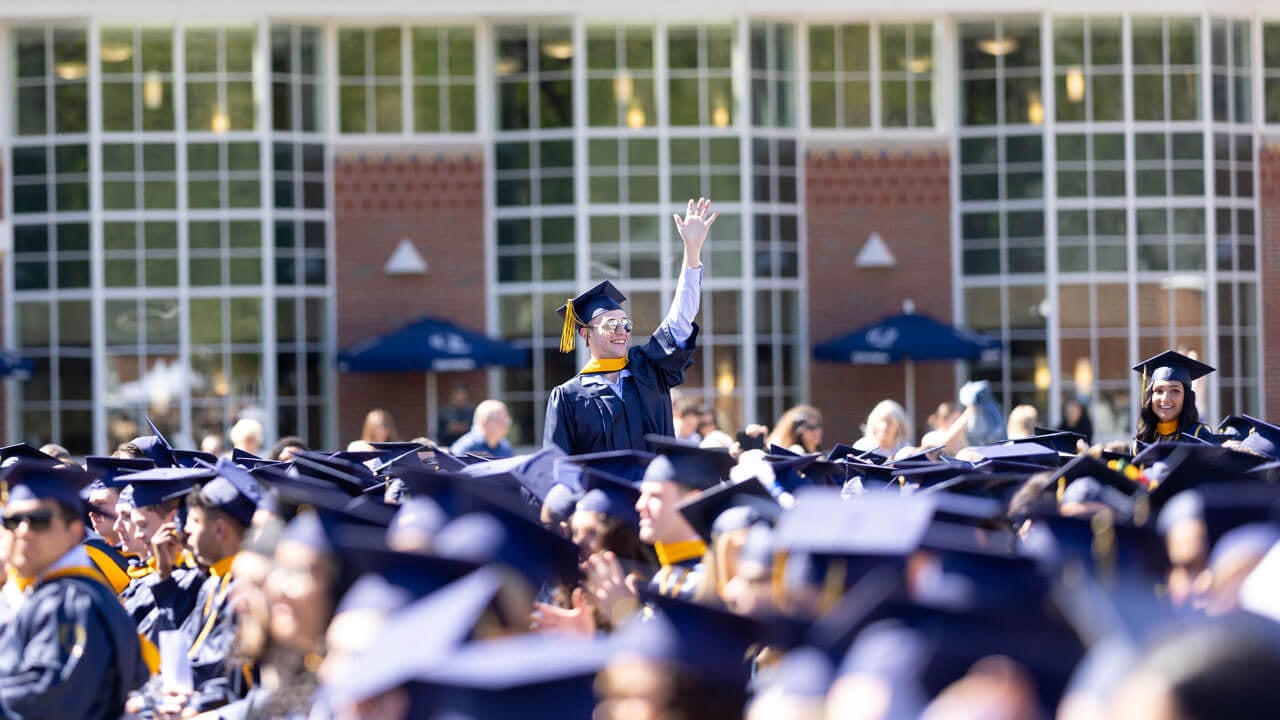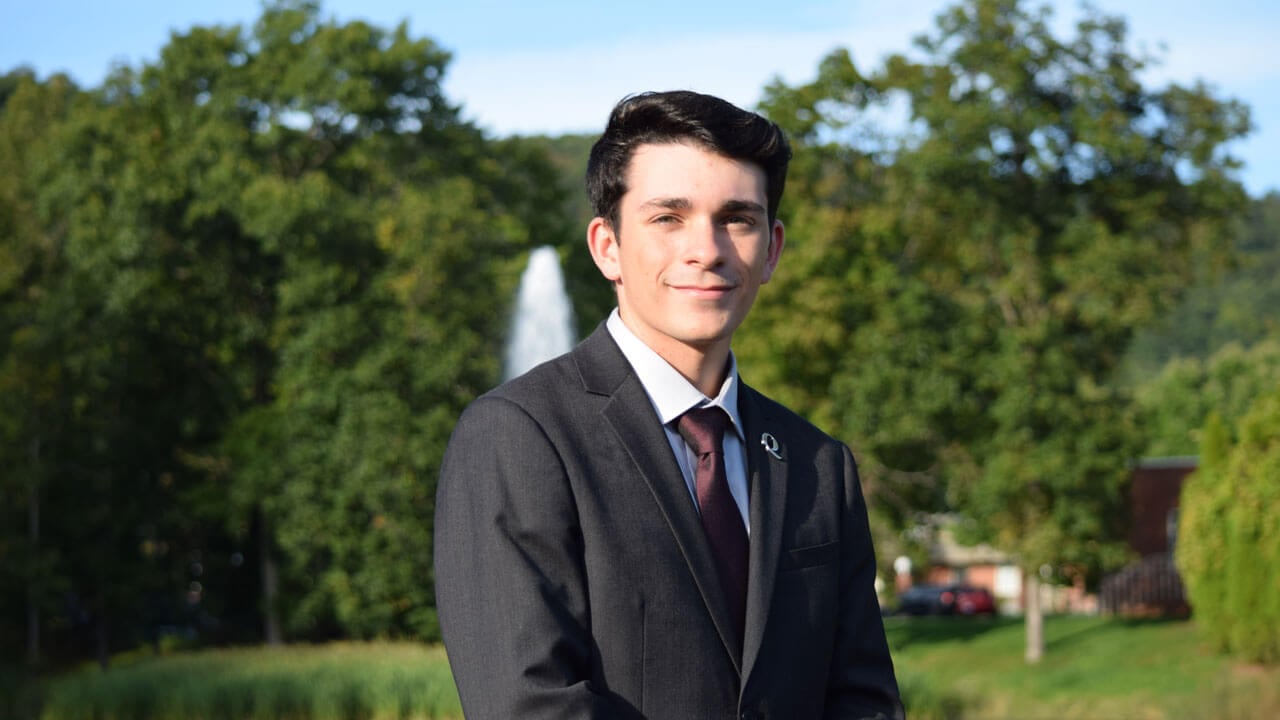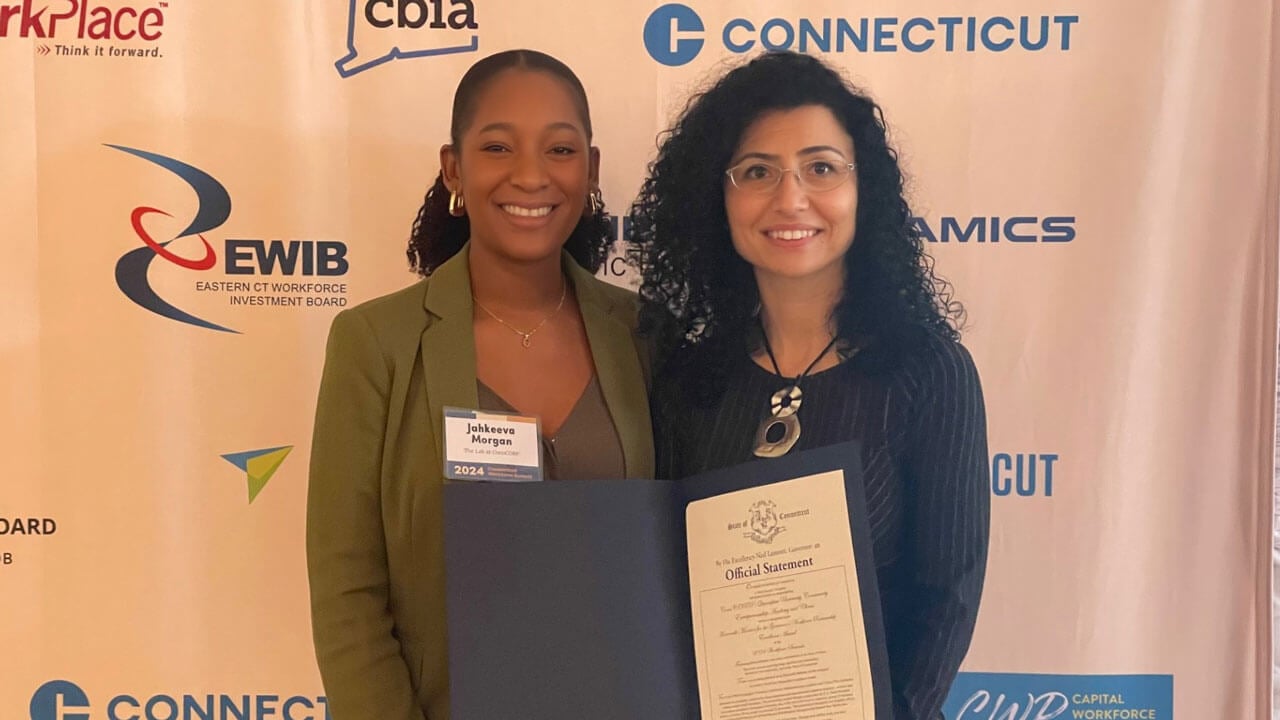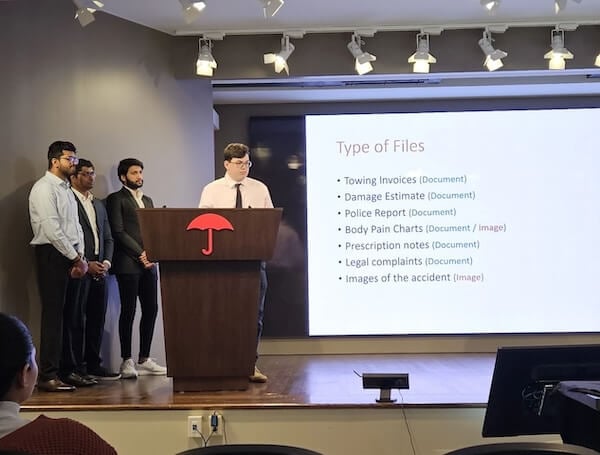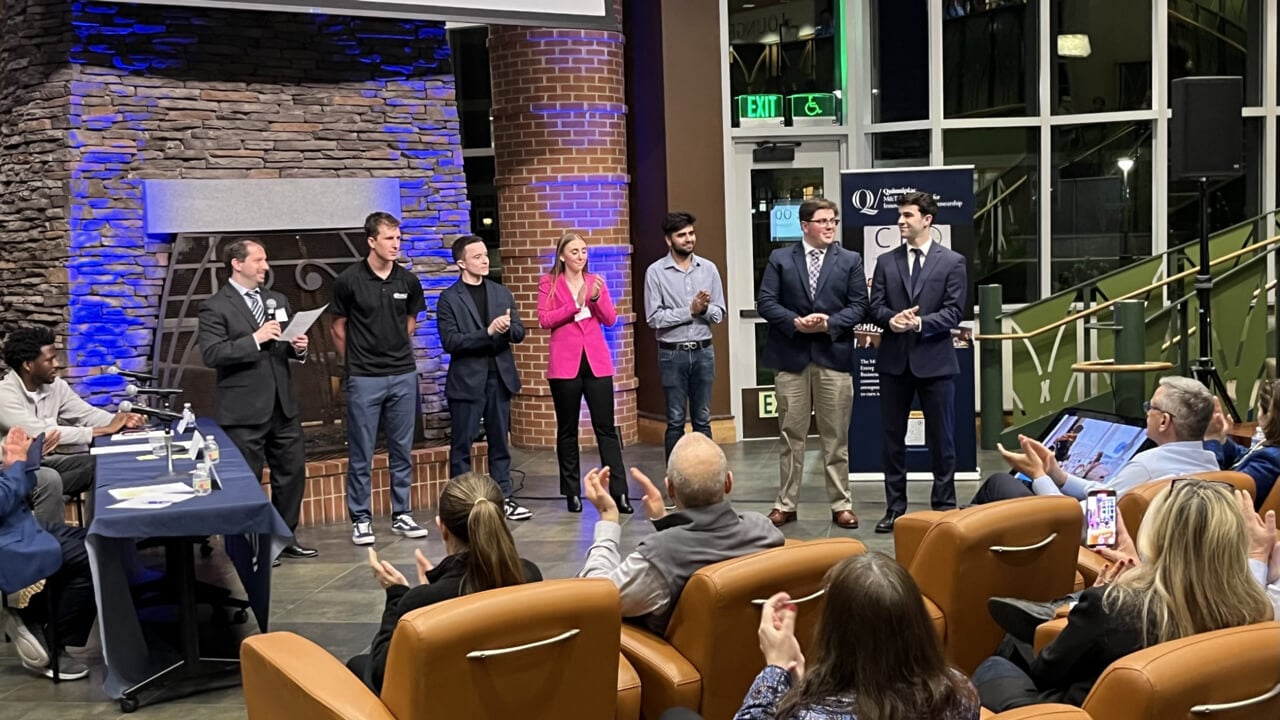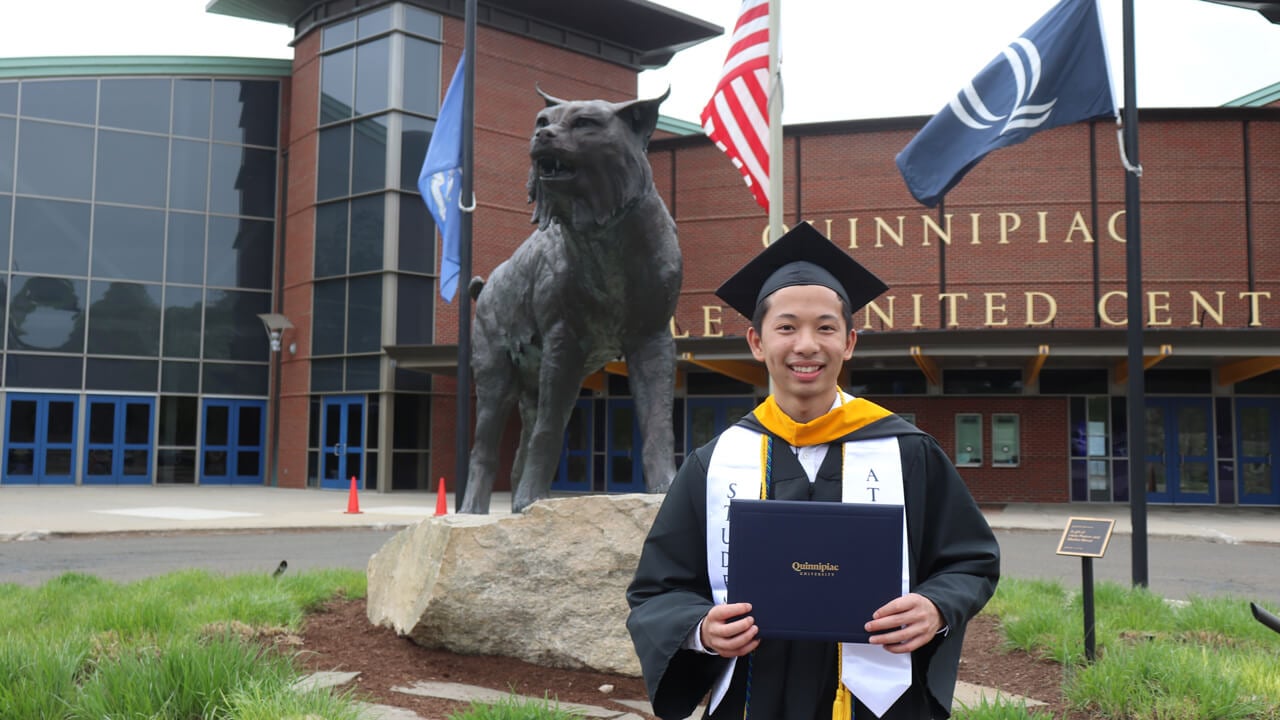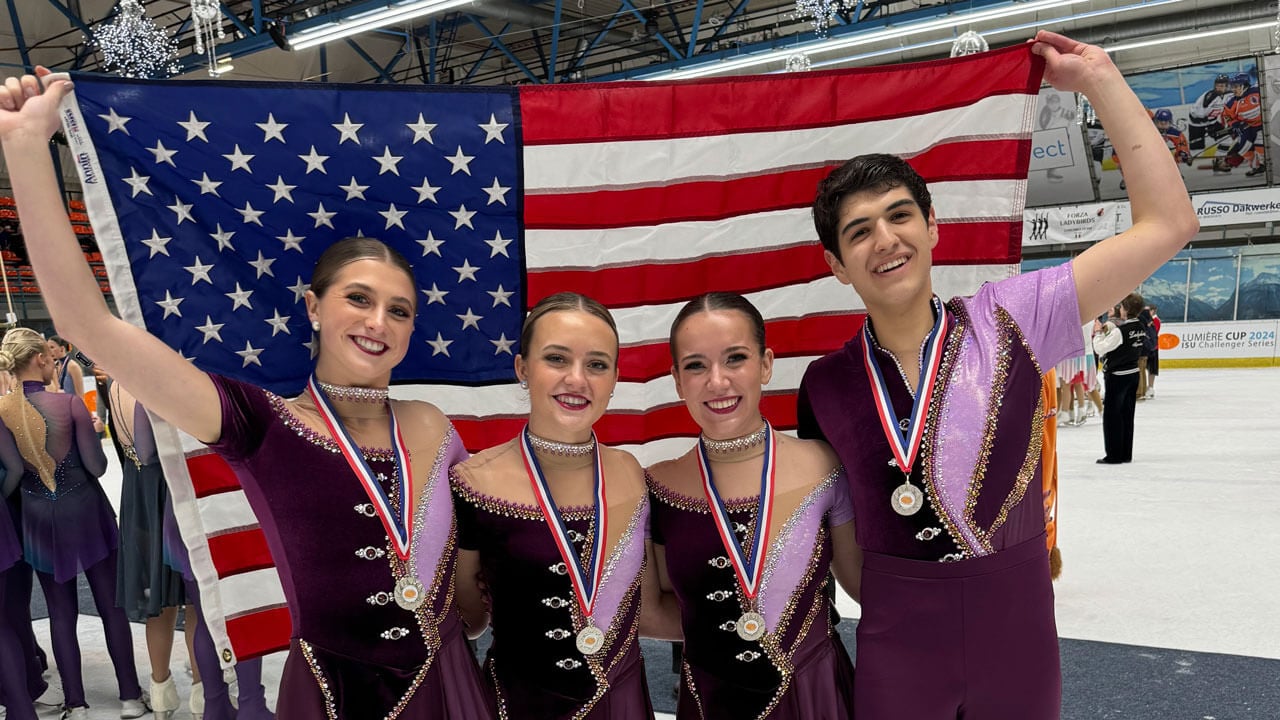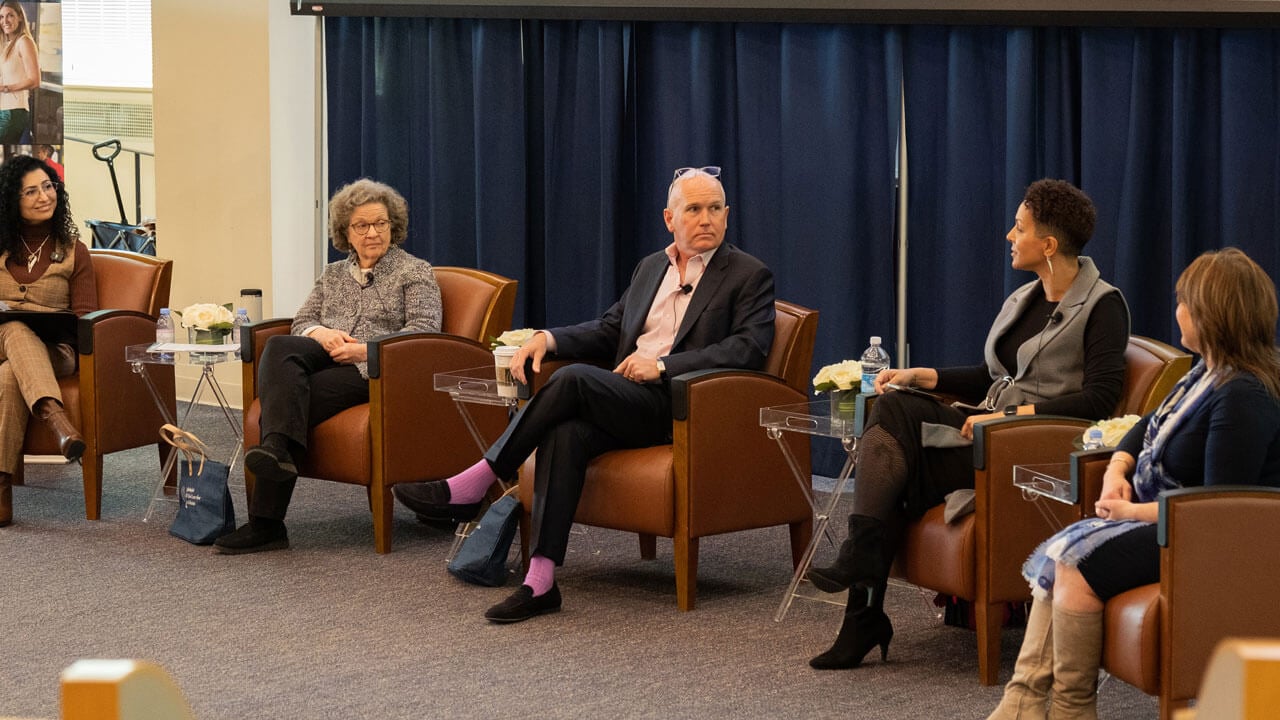
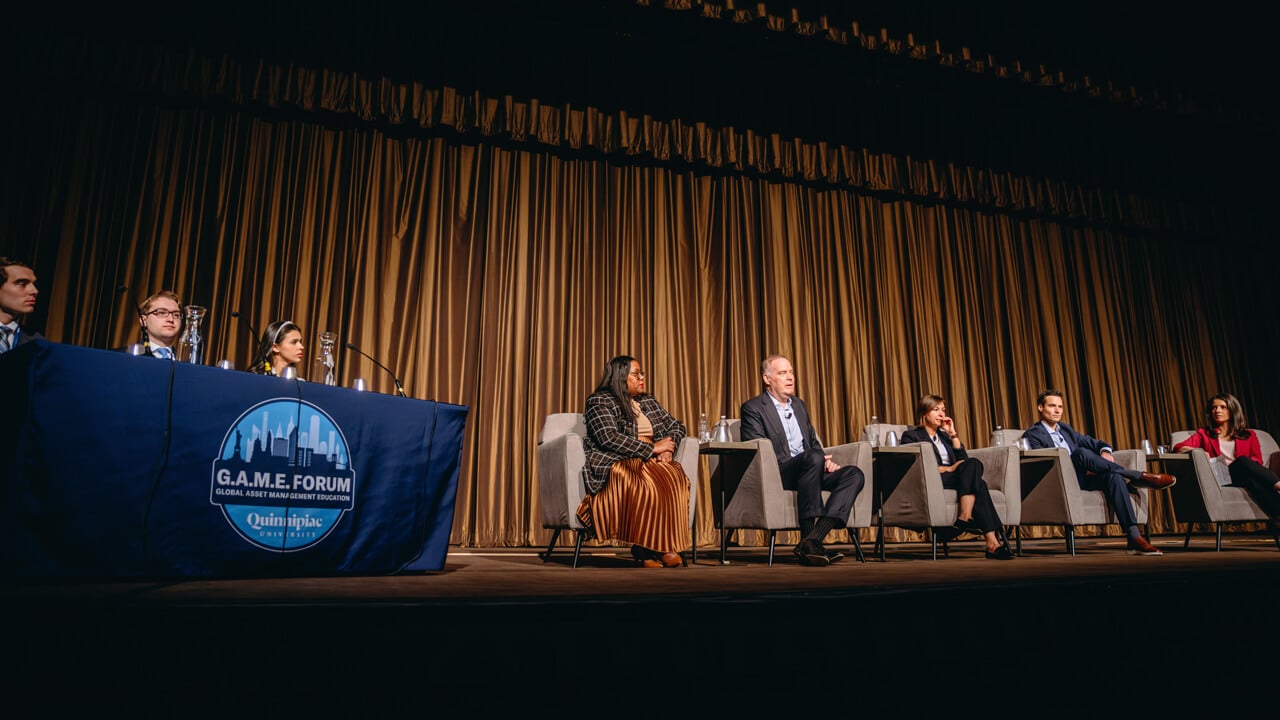
The “Outlook for U.S. and Global Economy in 2024” panel on the first day of Quinnipiac University’s 13th Global Asset Management Education (GAME) Forum in New York was optimistic that inflation is, with bumps in the road, on the correct downward course.
The panel was hosted by Katie Greifeld, a Bloomberg Markets anchor. Blerina Uruçi, chief U.S. economist for T. Rowe Price, said she’s “optimistic there will be a soft landing for the U.S. economy this year,” and said it was remarkable that the Federal Reserve could raise interest rates without unduly affecting unemployment.
Mattthew Luzzetti, chief U.S. economist at Deutsche Bank, said that historical precedents suggesting at least a “mild” recession are likely to be wrong in the current case.
Michael Gapen, managing director and chief U.S. economist for Bank of America Global Research, estimated that the economy is already two-thirds of its way into the soft landing, “though we can’t declare victory just yet. But unemployment is at record lows.”
Factors in the low unemployment are large numbers of Baby Boomers exiting the job market, and employers “hoarding” workers and not letting them go, said Dana M. Peterson, chief economist at The Conference Board.
At Greifeld’s prompting, the panelists explored the current two percent inflation target. “Two percent just felt like the right level, though there’s no clear empirical evidence for it,” said Luzzetti. “Other central banks have set that same goal.”
Gapen added, “The target is the target, and if it is you should work to achieve it. Setting the inflation rate is in the Fed’s DNA.” Uruçi said two percent “is not magical,” and said it might make sense to set a range for acceptable inflation numbers.
Although predictions that artificial intelligence (AI) will cause mass layoffs are common, the panelists were positive about its likely economic effects. Uruçi said AI is creating jobs and adding value to tech companies, and will possibly lead to shorter work weeks. Peterson said it will “be labor-enhancing in the long run, freeing employees from mundane tasks.” She added, “We will always need human workers. AI isn’t able to do critical thinking.” Gapen said he’s “optimistic on AI.”
The GAME conference drew more than 1,500 participants from 130 universities. There were 29 panels, over 110 speakers, and 70 companies represented.
Scenes from GAME XIII
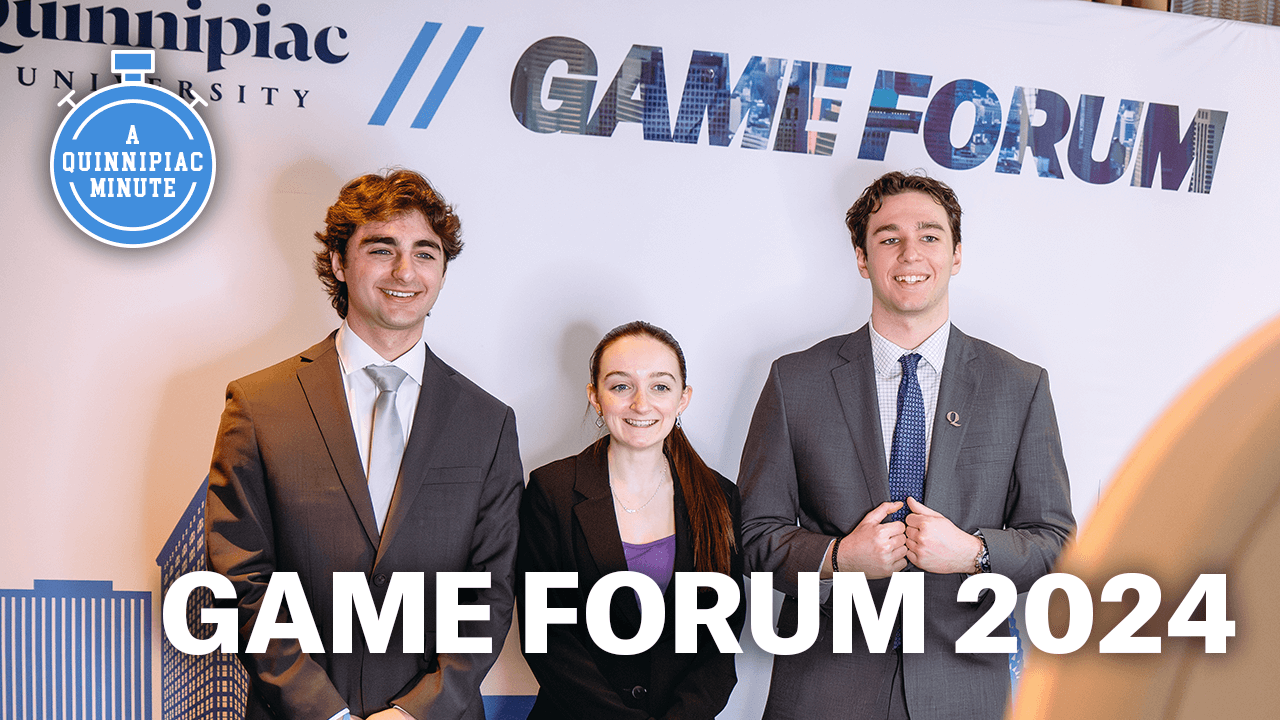
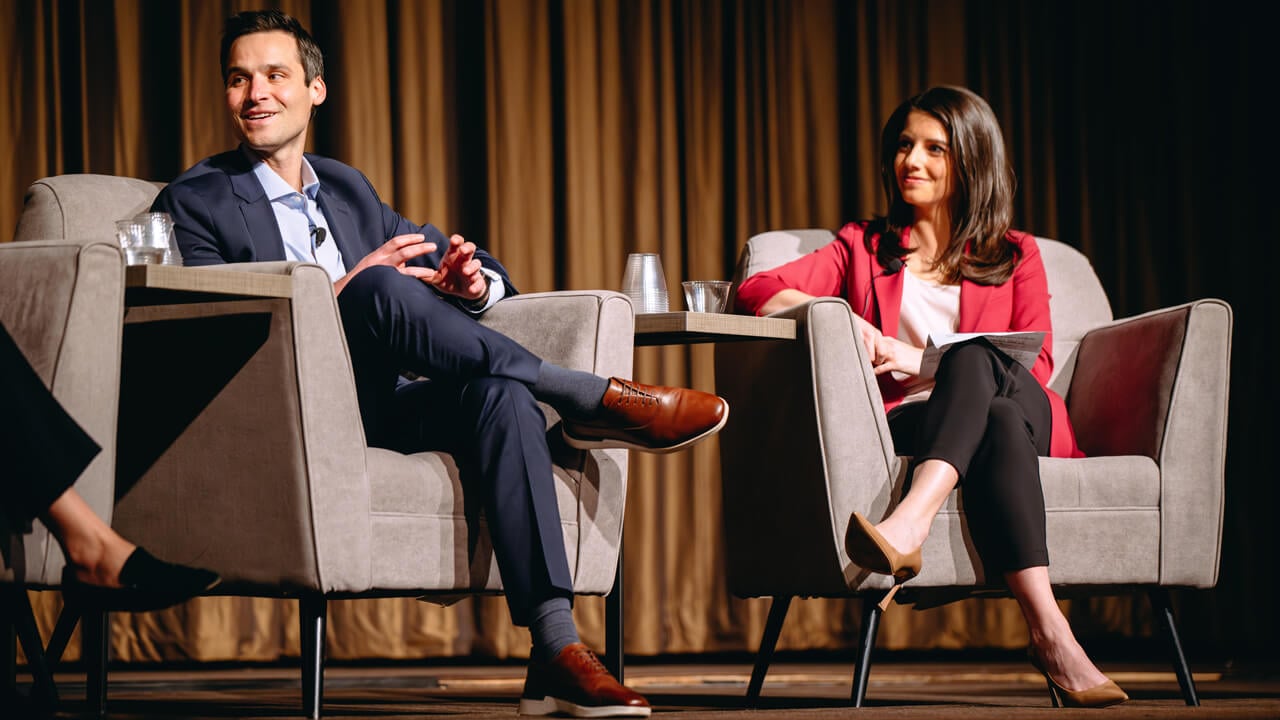
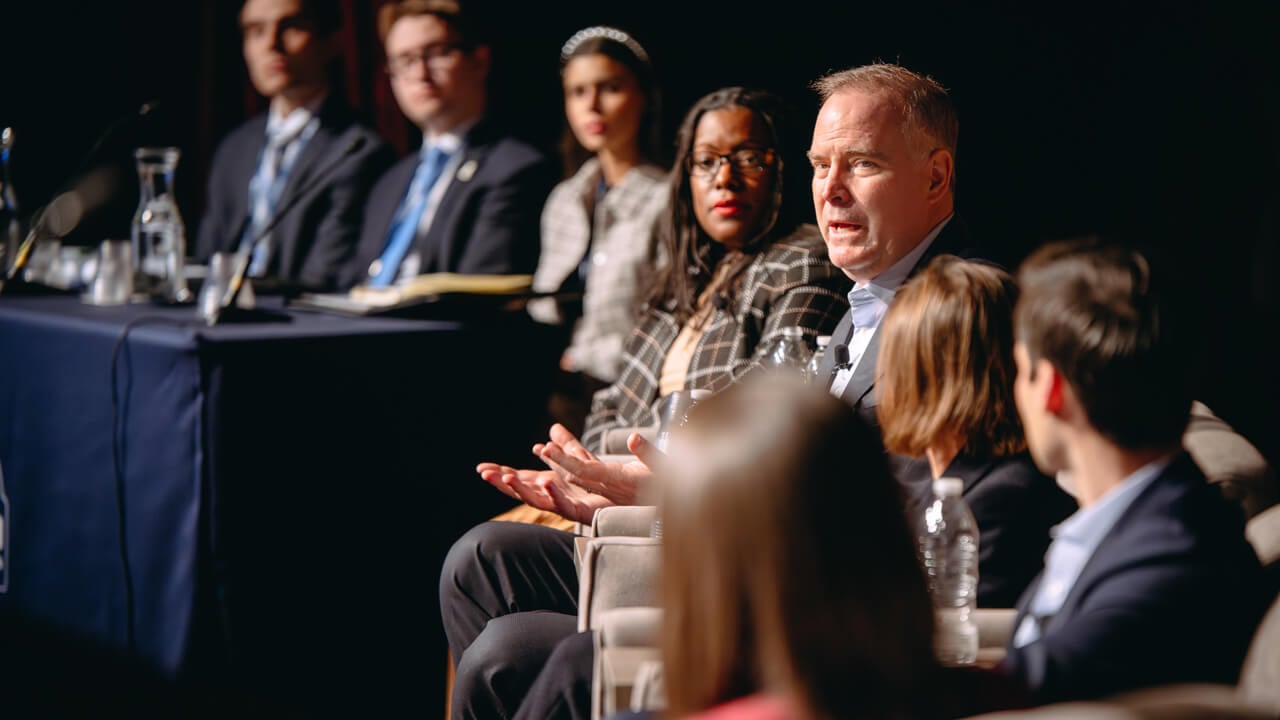

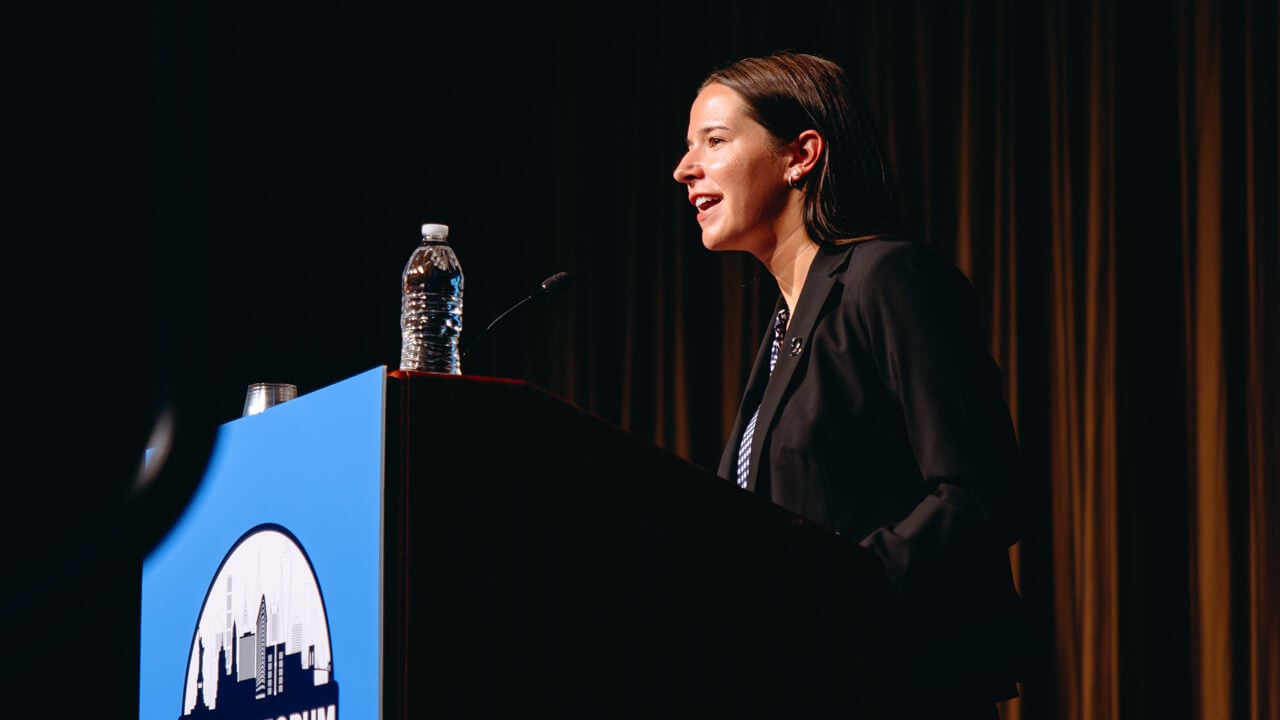
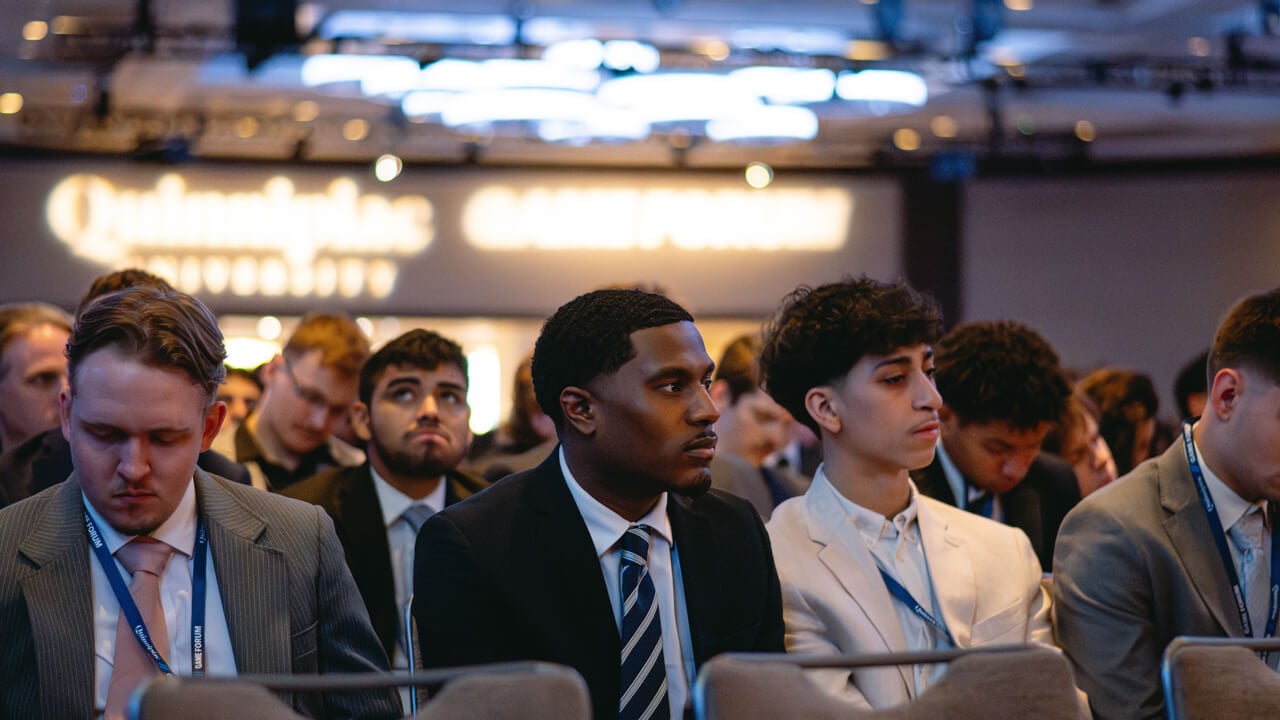
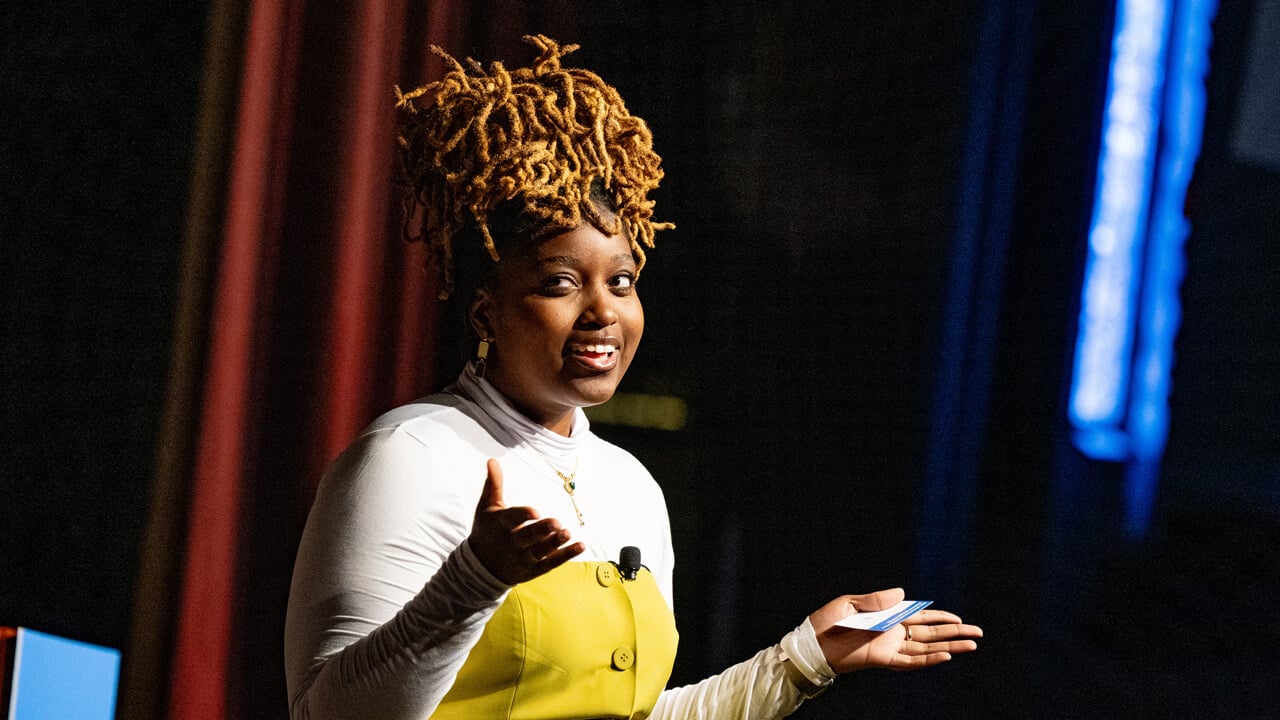
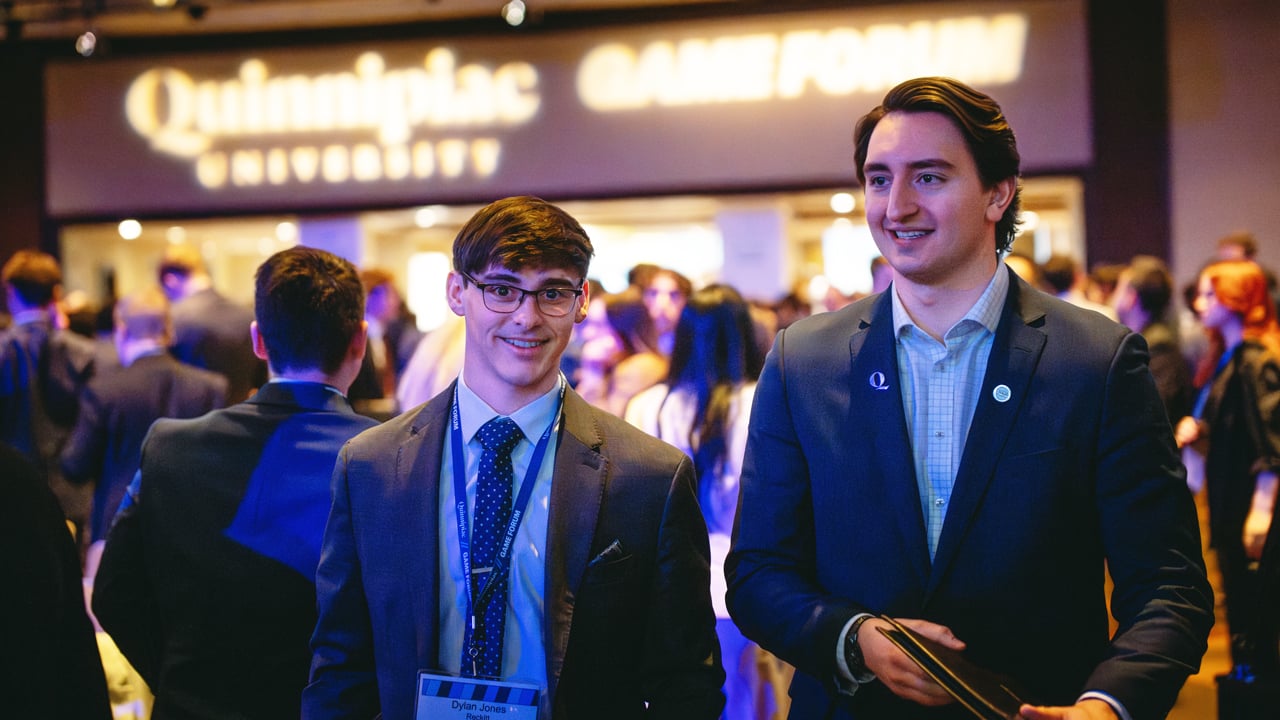
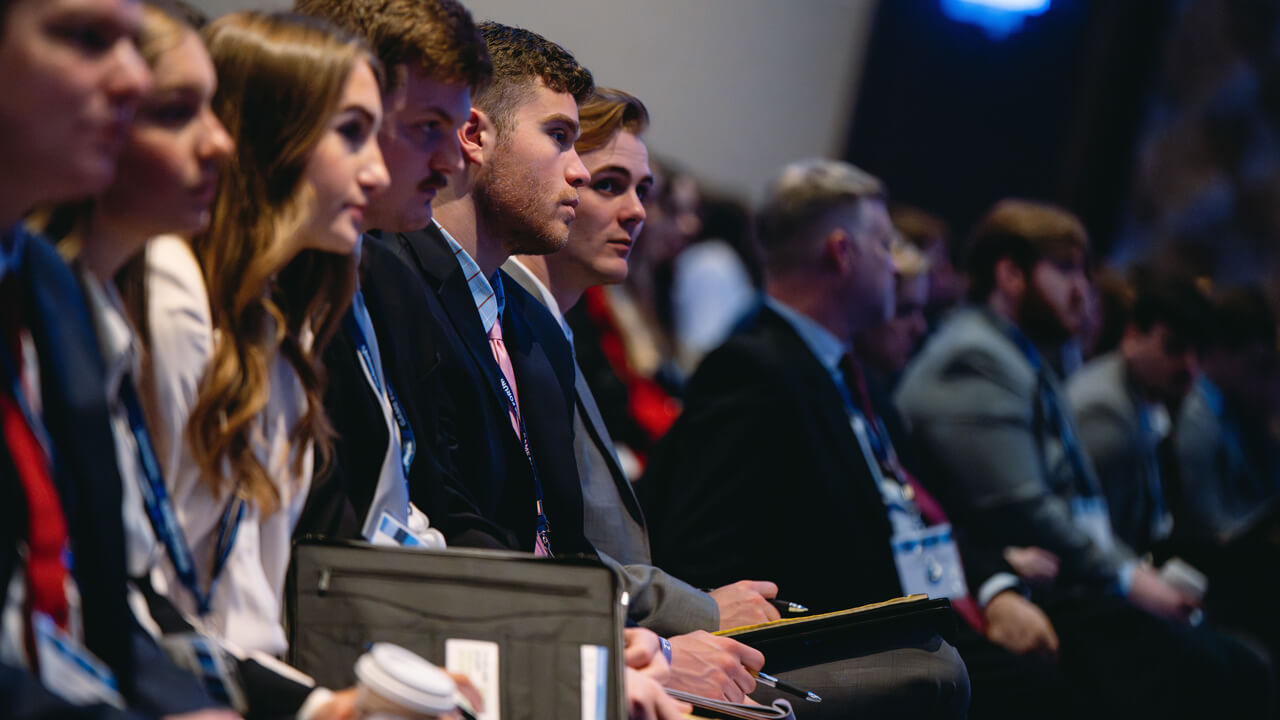
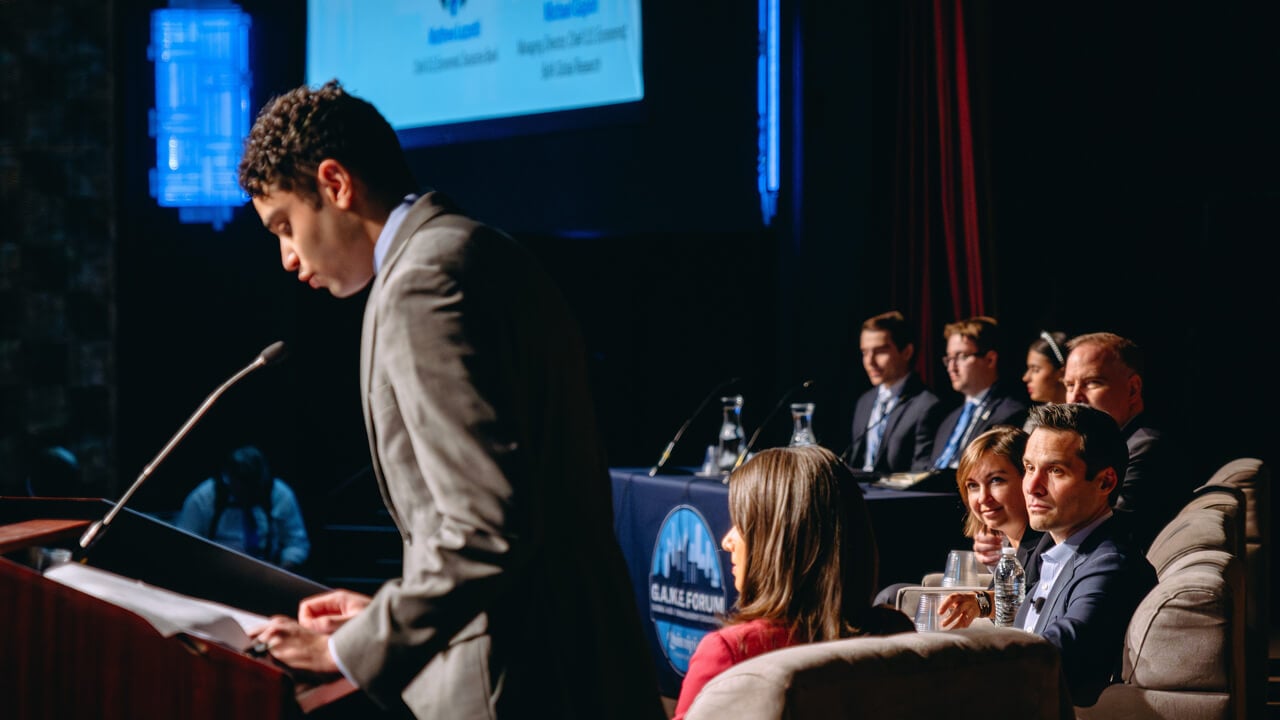

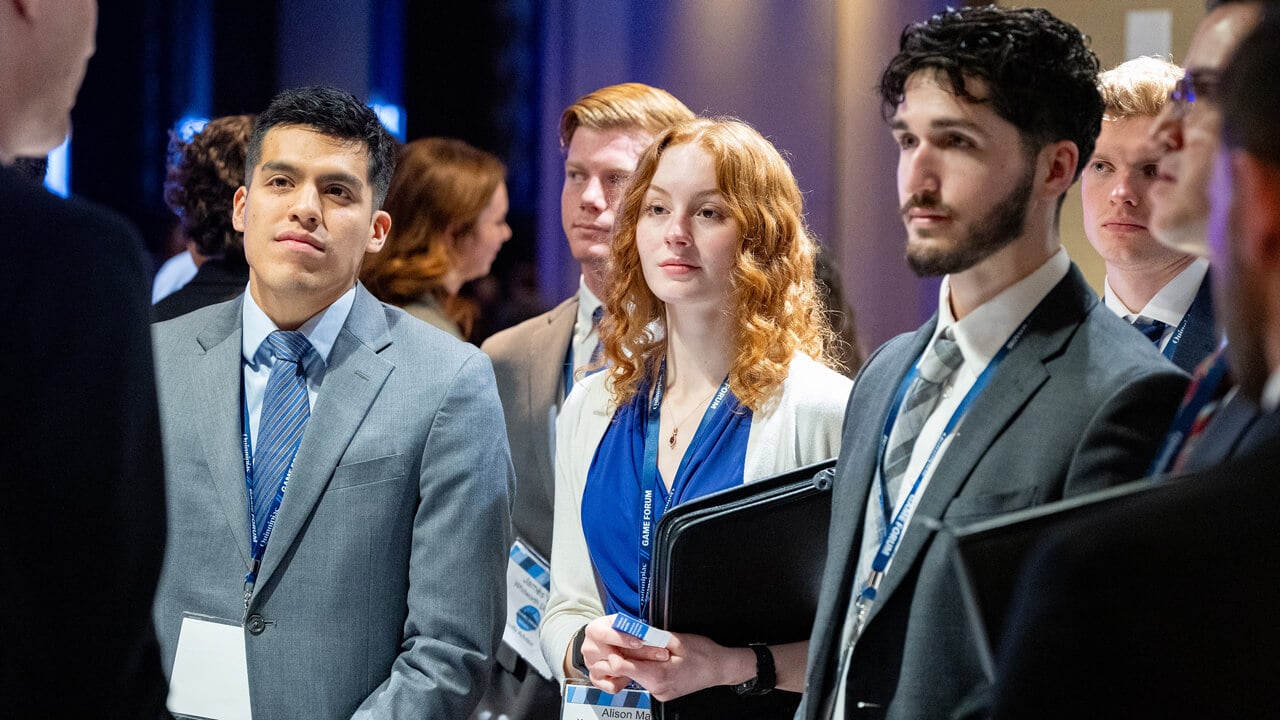
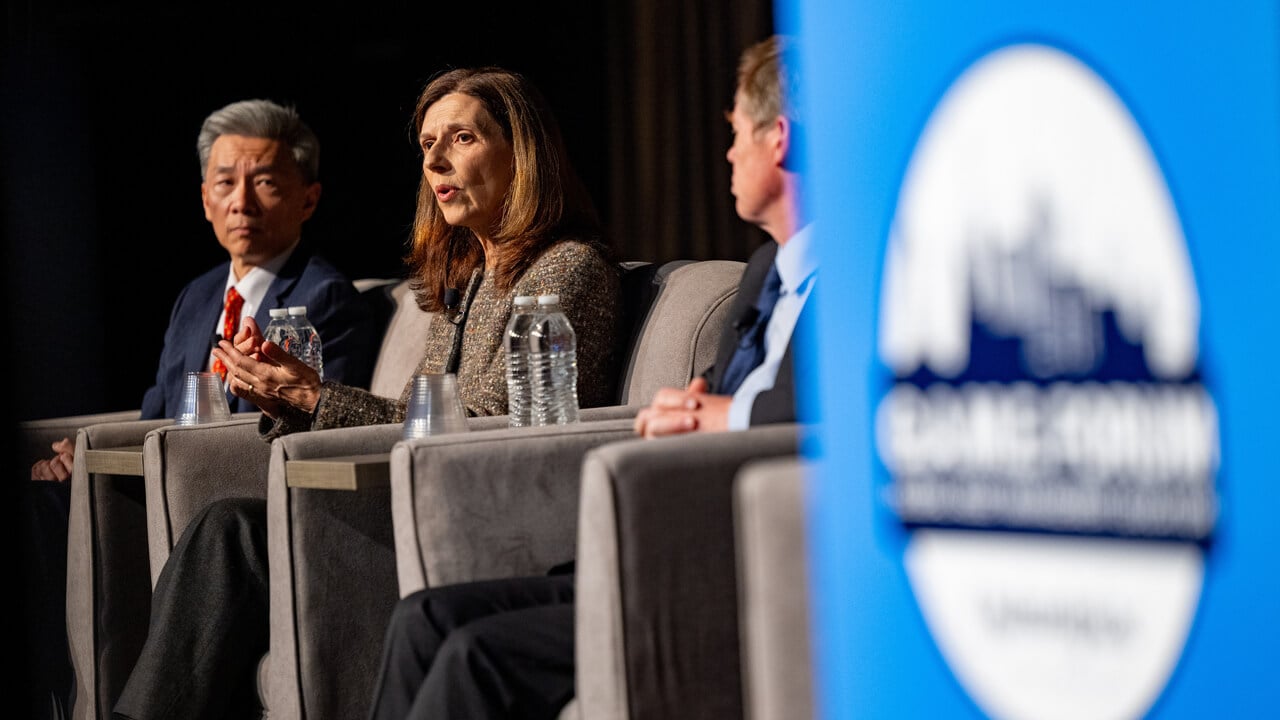
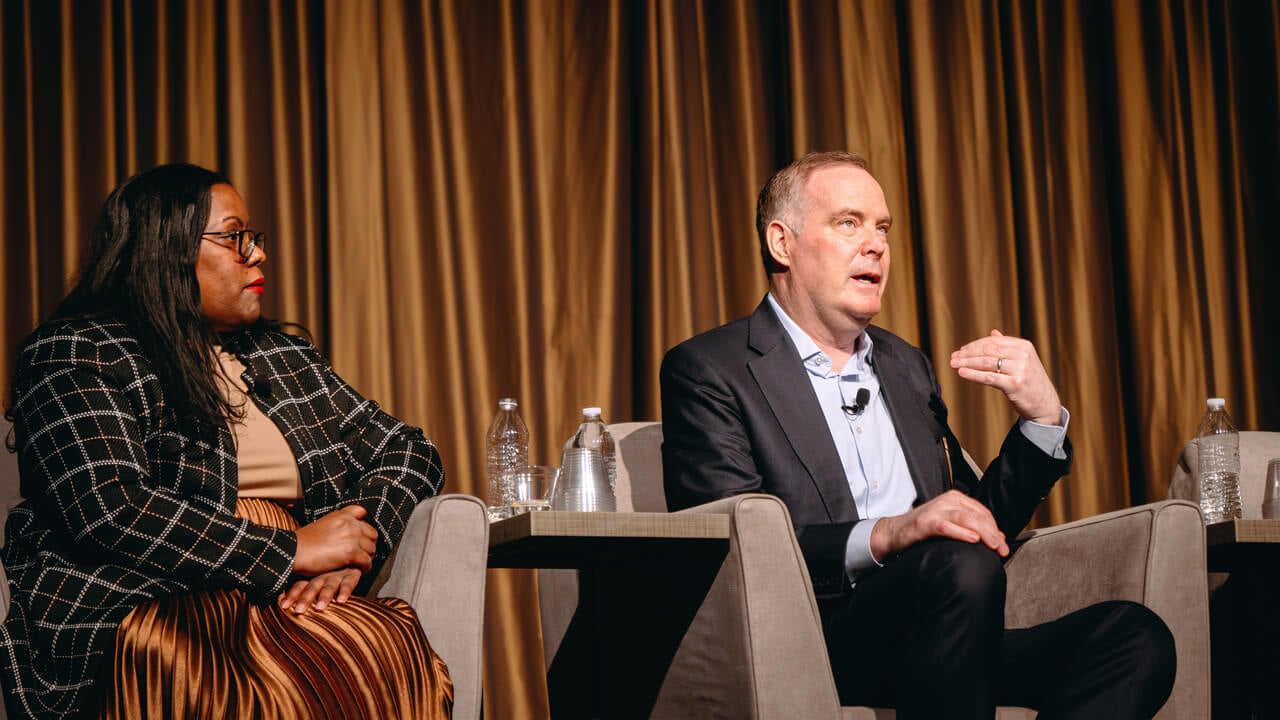
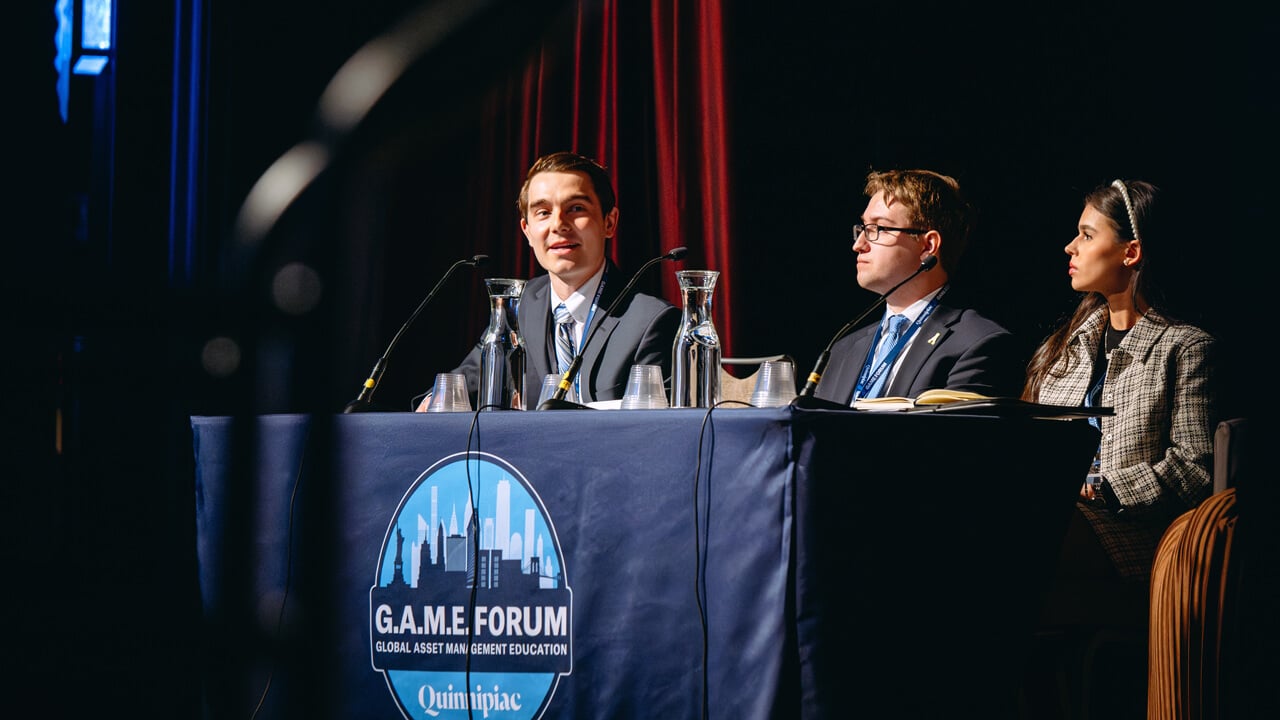
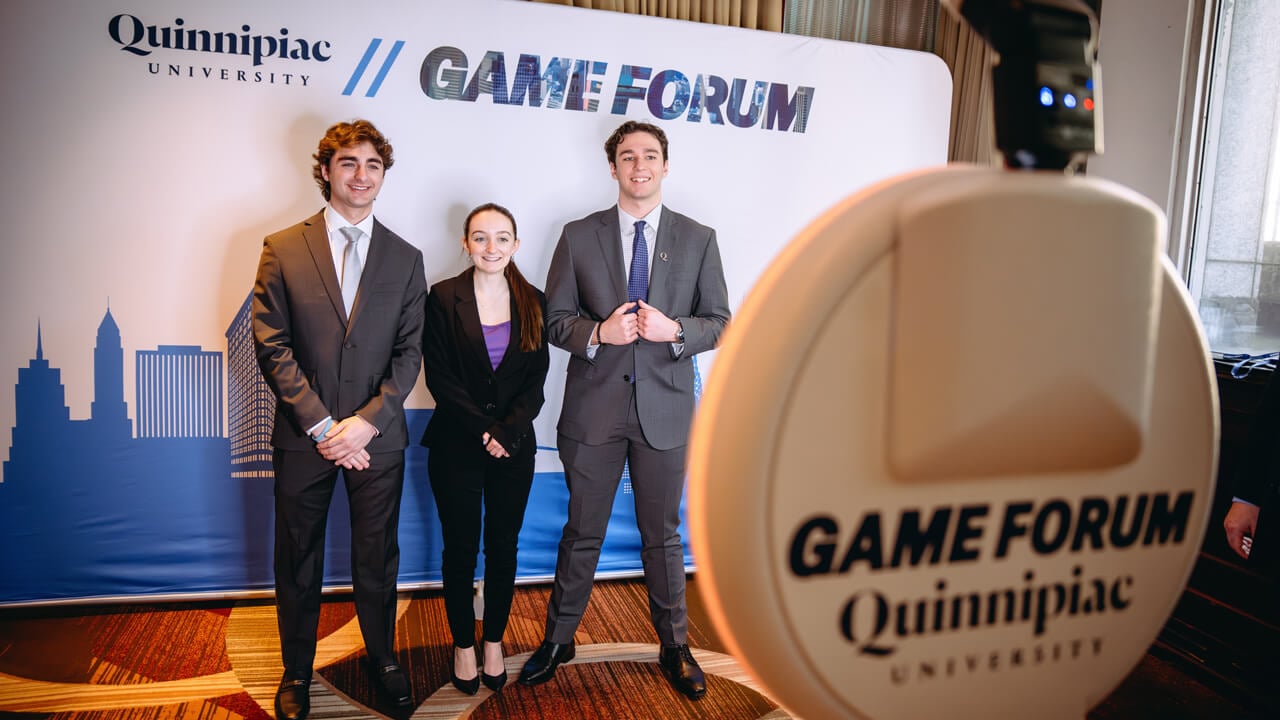
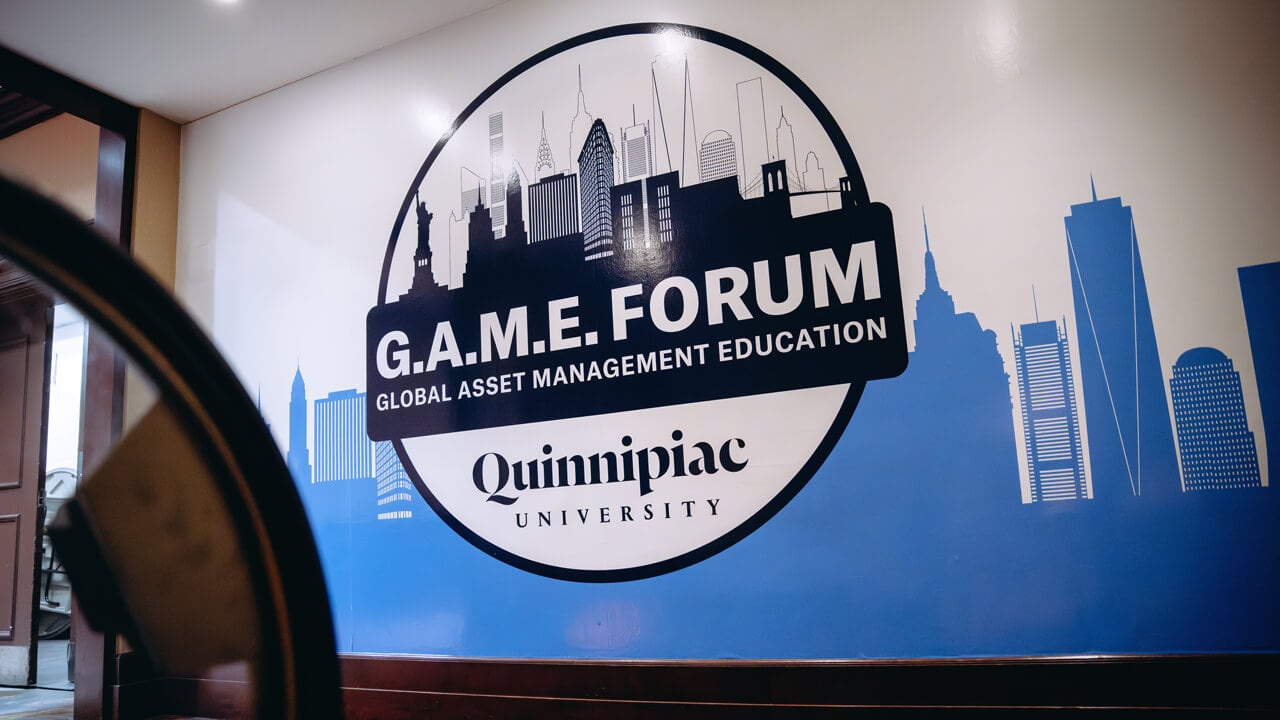
In this Article
Stay in the Loop
Quinnipiac Today is your source for what's happening throughout #BobcatNation. Sign up for our weekly email newsletter to be among the first to know about news, events and members of our Bobcat family who are making a positive difference in our world.
Sign Up Now




